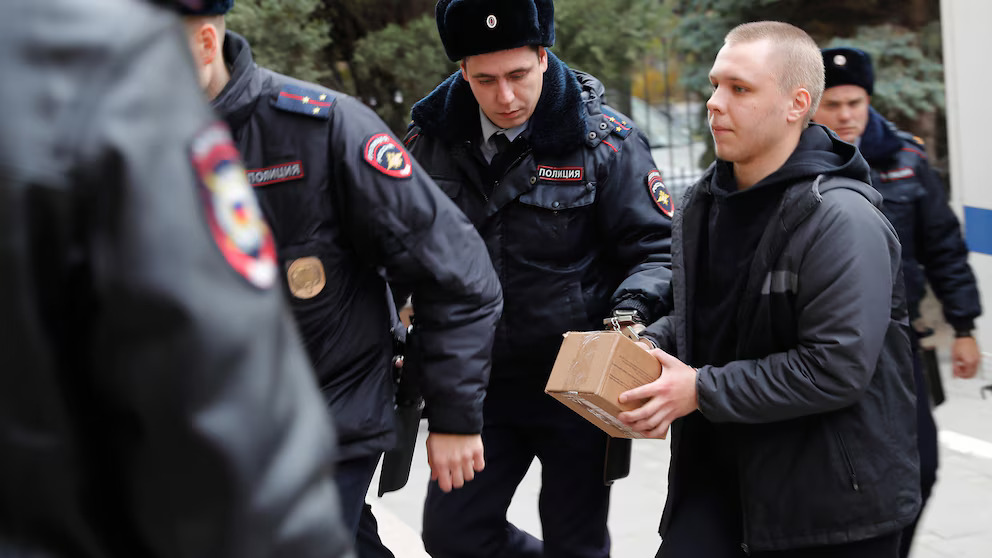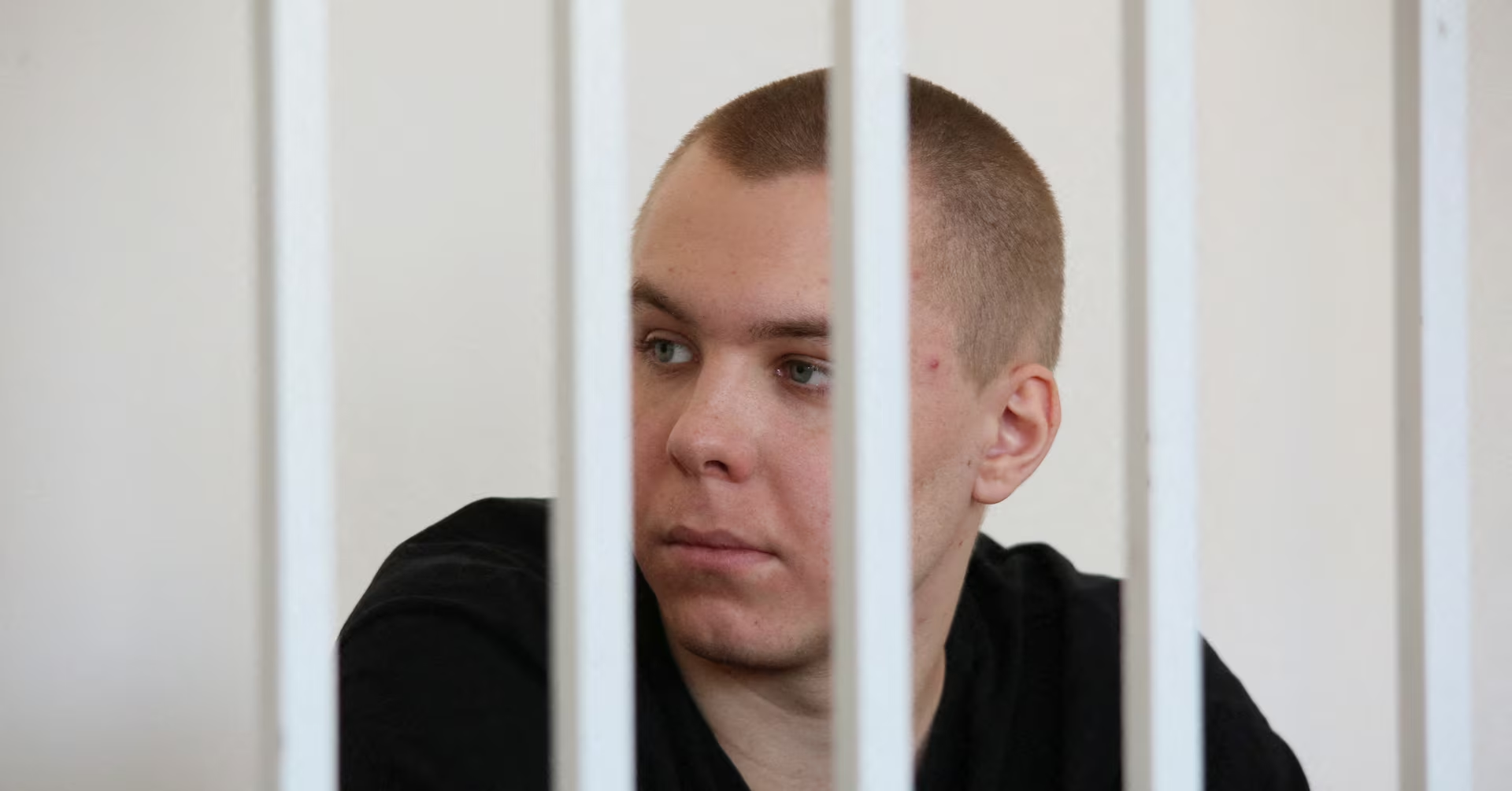A Russian court sentenced Nikita Zhuravel to an additional 13 years and six months in prison Monday on treason charges, extending the punishment of the 20-year-old who was already serving time for burning a Quran in a case that has drawn international attention.

The Volgograd Regional Court found Zhuravel guilty of “high treason” for allegedly sharing videos of Russian military equipment and aircraft with Ukraine’s SBU security service in March 2023. The closed-door proceedings, which began November 14, required Zhuravel’s transfer from detention in Chechnya to Volgograd for the hearings.
The new sentence, combined with his existing three-and-a-half-year term for offending religious believers, means Zhuravel will spend 14 years in a maximum-security prison, according to prosecutors. The case has attracted widespread attention not only for its severity but for circumstances surrounding Zhuravel’s detention.
The defendant made headlines in August 2023 when he accused Adam Kadyrov, the 15-year-old son of Chechen leader Ramzan Kadyrov, of assaulting him while in pre-trial detention. The younger Kadyrov later released video footage of the alleged assault, but law enforcement authorities declined to investigate the incident. In a controversial move, several regional authorities subsequently honored the teenage Kadyrov with state awards.
The human rights organization Memorial, which has designated Zhuravel a political prisoner, has raised concerns about the handling of both cases. The treason trial’s closed nature and Zhuravel’s treatment in detention have drawn particular scrutiny from human rights observers.

The original conviction stemmed from Zhuravel burning a Quran in the Volgograd region of southern Russia, an act that resulted in his February sentencing by a Chechen court. Court documents and media reports have not clarified whether Zhuravel entered a plea to the treason charges, and details of the prosecution’s evidence remain sealed.
The case reflects growing tensions in Russia’s judicial handling of religious and political offenses, particularly in cases involving alleged cooperation with Ukrainian authorities during the ongoing conflict. The severity of the combined sentences has raised questions about the intersection of religious freedom, political dissent, and national security in contemporary Russia.
The prosecution’s successful pursuit of treason charges, carrying some of the heaviest penalties in the Russian criminal code, marks a significant escalation from the religious offense case. The total 14-year sentence places Zhuravel among the longest-serving prisoners convicted in cases combining religious and political charges in recent Russian judicial history.
International human rights organizations continue to monitor the case, particularly given Zhuravel’s age and the circumstances of his detention. The conviction adds to growing concerns about Russia’s expanding use of treason charges against young defendants and the handling of cases involving religious sensitivities in the Russian judicial system.



